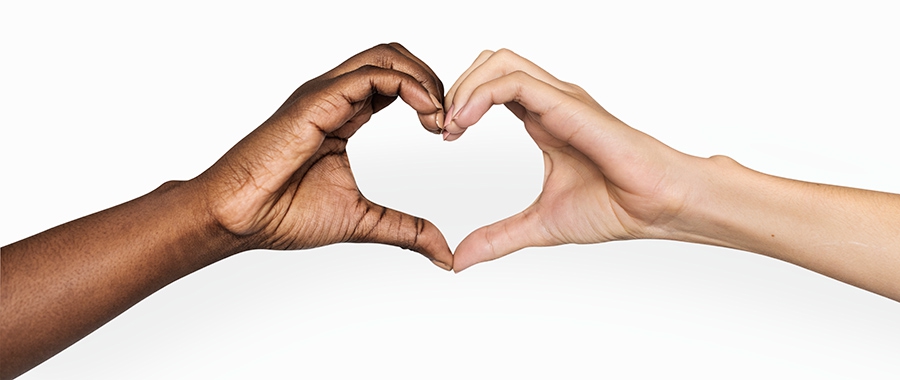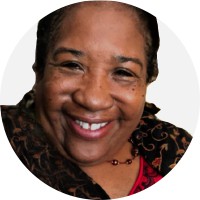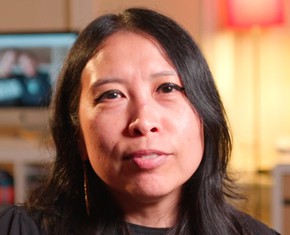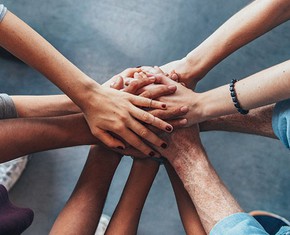The views expressed in our content reflect individual perspectives and do not represent the authoritative views of the Baha'i Faith.
Unique in the annals of religious theology, the teachings of the Baha’i Faith contain specific instructions to Americans of African and white descent about the actions necessary to heal the racial divisions dividing our country.
Shoghi Effendi, the Guardian of the Baha’i Faith, in his seminal 1938 letter to the American Baha’i community titled The Advent of Divine Justice, wrote that eliminating racial prejudice is “the most vital and challenging issue” facing the community and declared that:
… to discriminate against any race, on the ground of its being socially backward, politically immature, and numerically in a minority, is a flagrant violation of the spirit that animates the Faith of Baha’u’llah. – pp. 28-29.
Despite significant advances, the racial situation in the United States is, in 2020, on the brink of disaster.
Nearly eighty years after The Advent of Divine Justice letter was sent, the generality of white people in the U.S. have failed to apply the ceaseless exertions and sacrifices, the care and vigilance the issue of racial prejudice demands. While both whites and people of African descent have roles and responsibilities in eliminating racial prejudice, it is time for white people to fearlessly focus their attention and efforts towards Shoghi Effendi’s exhortation to:
… abandon once and for all their usually inherent and at times subconscious sense of superiority, to correct their tendency towards revealing a patronizing attitude … – Ibid.
towards people of African descent. The current state of affairs is untenable, and is contributing to the instability of the entire planet:
And among the teachings of Baha’u’llah is that religious, racial, political, economic and patriotic prejudices destroy the edifice of humanity. As long as these prejudices prevail, the world of humanity will not have rest. For a period of 6,000 years history informs us about the world of humanity. During these 6,000 years the world of humanity has not been free from war, strife, murder and bloodthirstiness. In every period war has been waged in one country or another and that war was due to either religious prejudice, racial prejudice, political prejudice or patriotic prejudice. It has therefore been ascertained and proved that all prejudices are destructive of the human edifice. – Abdu’l Baha, Selections from the Writings of Abdu’l-Baha
The 1992 document from the National Spiritual Assembly of the Baha’is of the United States, called “The Vision of Race Unity” provides critical guidance for anyone who wishes to learn more about what Baha’is believe, think and are doing to create racial unity in American communities. Yet, collective, systematic and sustained efforts towards racial healing and race unity have not matched the continuing deterioration of race relations in the U.S. The teachings of Baha’u’llah assert the essential unity of humanity, the divine nature of the human soul, and the diversity of the human family. The Baha’i Faith, with no clergy, promotes the principle of individual initiative, which follows Baha’u’llah’s divine instruction to “Let deeds, not words, be your adorning.” – The Hidden Words. As a statement of faith in God, our actions to promote racial healing and unity are fundamental.
With racial tension, violence and institutionalized discrimination in the U.S. increasing daily, I often wonder: what does racial healing mean for white people and what role do people of African descent play in that healing? Mrs. Phyllis Unterscheutz, a white woman, gave a talk recently about the book she and her husband Gene wrote called Longing: Stories of Racial Healing at the Welcome Center of the Baha’i House of Worship in Wilmette, Illinois. She also spoke about her work with Tod Ewing in their “Race Story Rewrite Project” organization, which facilitates spaces for racial healing, dialogue about race and race unity, and action plans.
In response to a question about whether her talk was for black or white people, Mrs. Unterschuetz responded that in her view, her talk was aimed primarily at white people, to encourage them to focus on what Shoghi Effendi called a “subconscious, inherent sense of superiority:”
Let the white make a supreme effort in their resolve to contribute their share to the solution of this problem, to abandon once for all their usually inherent and at times subconscious sense of superiority, to correct their tendency towards revealing a patronizing attitude towards the members of the other race … – Shoghi Effendi, The Advent of Divine Justice
That subconscious, inherent sense of superiority, engendered from birth to adulthood in white American society through family of origin, education, housing, media, and public and private institutions dating from the inception of this country, has existed from the time of the Transatlantic Slave Trade, the Civil War, Jim Crow and segregation, the Civil Rights movement and into the present day.
Shoghi Effendi also challenged people of African descent, correspondingly, with the effort to:
… show by every means in their power the warmth of their response, their readiness to forget the past, and their ability to wipe out every trace of suspicion that may still linger in their hearts and minds. – Ibid.
The Advent of Divine Justice urges white people who are persuading people of African descent of their sincerity to eliminate racial prejudice through “intimate, spontaneous and informal association” with them. – Ibid.
As I reflect on Mrs. Underschuetz’s comments and Shoghi Effendi’s letter—now published in book form—I recognize more fully that both white people and people of African descent have specific tasks to eliminate racial prejudice and discrimination. White people in particular have an essential and inescapable part to play in eliminating racial prejudice. Abdu’l-Baha underscored such a direct focus and articulation of the necessity of the Baha’i teachings in achieving race unity:
This opposition, enmity and prejudice among the white race and the colored cannot be effaced except through faith, assurance and the teachings of [Baha’u’llah]. – Ibid.
Everyone, whether Baha’i or not, has the capacity and ability to study the teachings of the Faith. Reading and studying the writings of Baha’u’llah requires an open heart and mind, and a willingness to carefully examine all preconceived notions, biases and assumptions, ideas developed from childhood to adulthood. The Baha’i Faith is a religion that encourages examination of unconscious “truths” about race—the stories your parents told you about people of a different race, what you learned from watching TV or being in school. If you grew up with no contact with people of African descent, the Baha’i Faith creates the opportunity for you to fully educate yourself about the history of people of African descent from their perspective, experience and background. In the Baha’i Faith, the principle of the independent investigation of truth is a fundamental characteristic of being human, and one of the primary Baha’i principles:
The first is the independent investigation of truth; for blind imitation of the past will stunt the mind. But once every soul inquireth into truth, society will be freed from the darkness of continually repeating the past. – Abdu’l-Baha, Selections from the Writings of Abdu’l-Baha
The Baha’i writings state that each human being should “… bring thyself to account each day …” – Baha’u’llah, The Hidden Words, p. 11. This practice gives us the daily opportunity to examine if our individual thoughts, views and actions are advancing racial healing and social justice in our communities. Each of us can look at our own biases and preconceptions about what we think other people are, or are not. That is the hard work of building true unity within the human family on this planet.
By committing to acts of selfless service, in associating with the diverse members of the Baha’i community, the divisions of racial prejudice can be eliminated to create unity as “the fingers of one hand” as Baha’u’llah wrote:
Beware lest the desires of the flesh and a corrupt inclination provoke divisions among you. Be ye as the fingers of one hand, the members of one body. – Baha’u’llah, The Most Holy Book
It is not easy to build racial healing and unity, heart by heart, within the current, divisive American society. There is much fear, distrust, and suspicion among those, such as myself, who have endured what the Guardian called “grievous, slow healing wounds” due to systemic, generational racism. But the Baha’i Faith teaches that every human being has the capacity to be in a constant humble posture of learning—learning alongside each other to live peacefully in ways that are (hopefully) self-initiated, self-driven and continually infused with prayer and meditation.
While attempting to engage in racial healing dialogue with white people, I have endured (and stayed silent) being pre-judged, criticized, ignored, disrespected or insulted. I have heard white people who, in ignorance, say “I don’t see color,” “I’m colorblind,” or “I’m not racist.” White people may get nervous and defensive when directly challenged by people of African descent on their ignorant assumptions about race, and people who also may complain that such dialogue is an impediment to building unity, the Guardian has stated that:
… a tremendous effort is required by both races if their outlook, their manners, and conduct are to reflect, in this darkened age, the spirit and teachings of the Faith of Baha’u’llah. – The Advent of Divine Justice
Failure to make that “tremendous effort” to recognize and address the privileges and advantages of being white in contemporary American society—which include freedom of movement, association, and access to society’s benefits—can inhibit eliminating racial prejudice. As my grandmother used to say, “sometimes you have to tell the truth and shame the devil.” When I hear white people speak poetically about the Southern United States, discussing bucolic images of landscapes, flora and fauna and “salt of the earth” personas, I want to share my family’s stories of escaping the Deep South, with its domestic terrorism and unrelenting racial oppression that influenced Billie Holiday’s song “Strange Fruit” about lynching in those same landscapes. At those times, true racial healing in America seems sometimes unattainable. There are different histories and stories to be told, to be listened to and understood, to be unpacked and analyzed in the light of history, in the light of being part of a diverse human family, with one divine Creator.
So while I read the Baha’i writings, as well as historical and contemporary writers on race and social justice, I also listen and engage with my fellow Baha’is and others who want to build communities upon the principle of the oneness of humanity. Now is the time to be patient and to fearlessly persevere with white people’s uneven efforts to understand and examine unconscious racial bias. It’s time for white racial healing: to challenge the attitudes and the behavior of white friends, families and communities.
People of white and African descent have urgent, inescapable work to do to heal the “corrosion” that racial prejudice has created in every aspect of American society:
… racial prejudice, the corrosion of which…has bitten into the fiber, and attacked the whole social structure of American society. …
The ceaseless exertions which this issue of paramount importance calls for, the sacrifices it must impose, the care and vigilance it demands, the moral courage and fortitude it requires, the tact and sympathy it necessitates, invest this problem … still far from … satisfactorily resolved, with an urgency and importance that cannot be overestimated. – Ibid.
















Comments
Sign in or create an account
Continue with Googleor